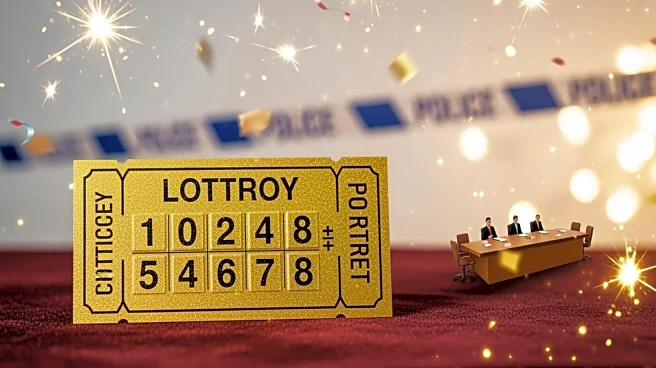What's Happening?
Tammy Carvey, a Michigan resident, won $100,000 in a Powerball drawing by using numbers generated by ChatGPT, an artificial intelligence tool. Carvey decided to play the lottery when the jackpot exceeded $1 billion and asked ChatGPT to provide a set of
numbers, which led to her winning four white Powerballs. By opting for a Power Play, her initial $50,000 prize was doubled. Carvey plans to use her winnings to pay off her home and save the remainder. The Michigan Lottery emphasized that the results of lottery drawings are random and cannot be predicted by AI or other number-generating tools.
Why It's Important?
This event highlights the growing influence of artificial intelligence in everyday decision-making, even in areas traditionally governed by chance, such as lottery games. While the Michigan Lottery maintains that AI cannot predict lottery outcomes, Carvey's win may encourage more people to experiment with AI for similar purposes. This could lead to increased interest in AI applications across various sectors, including gaming and finance. The story also underscores the randomness of lottery games and the role of luck, despite technological advancements.
Beyond the Headlines
The use of AI in generating lottery numbers raises questions about the ethical implications and potential regulatory considerations of AI in gambling. As AI becomes more integrated into daily life, there may be a need for guidelines to ensure fair play and prevent misuse. Additionally, this case may spark discussions on the psychological impact of AI on decision-making and the perception of luck versus skill in games of chance.
















